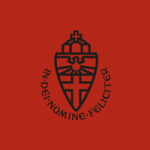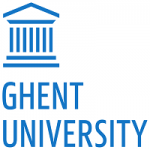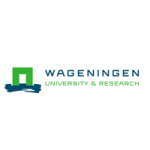项目介绍
Do you want to make a real-world impact? Come and join our team to develop cutting-edge biophysical models for decoding brain tissue properties from MR images.
This position is part of a project focused on developing efficient and robust models to extract quantitative biomarkers from MRI data, aiming to accelerate and enhance our ability to monitor the development of neurodegenerative, neuro-inflammatory, and neurovascular diseases. This process will be done in direct collaboration with a targeted group of early adopters involved in clinical studies and clinical trials (contract research organisations) based in the Netherlands, United Kingdom and Switzerland.
You will lead the development and integration of neural network decoding strategies for multi-compartment relaxometry (MCR) and myelin water imaging (MWI) as a new tool for assessing brain tissue microstructure. The work will focus on enhancing computational efficiency, improving biomarker extraction, and expanding the biophysical models to include vascular tissue factors and ensure the consistency of metrics extracted at different field strengths (from 0.5 to 7 Tesla).
Your tasks will include:
– Developing and optimising neural network-based methods for MCR-MWI and diffusion informed MWI.
– Collaborating with other team members to test these models and apply them to data from different MRI systems and field strengths (0.5T, 1.5T, 3T, 7T).
– Leading efforts to develop biomarkers beyond myelin water fraction (MWF), incorporating new data related to tissue vascularisation and metabolic oxygen rates (CMRO2).
Profile
- You hold a PhD in physics, biomedical engineering, medical imaging, computer science, or a related field.
- You have expertise in MRI data analysis, biophysical modelling, and/or neural networks.
- You have strong programming skills (Python, MATLAB, or similar) and experience with machine learning techniques.
- Familiarity with MRI pulse sequences and quantitative MRI methods (such as DWI, MWI or QSM) is highly desirable.
We are
We are the MR Structural Quantitative Imaging group, a dynamic and collaborative research team at the forefront of MRI technology. As a team, we create new methods to obtain MR images that have units, can be compared across sessions and subjects, and whose values can be interpreted in the light of the right biophysical model.
In our team, you will have access to mentorship from leading experts in the field, including José P. Marques, Martijn Cloos and Prof. David G. Norris (Donders Centre for Cognitive Neuroimaging). Additionally, you will have the opportunity to conduct site visits and interact with the groups of Dr Berkin Bilgic and Kwok-shing Chan (Massachusetts General Hospital), as well as with clinical partners Prof. Cristina Granziera (Basel University) and Petra Pouwels (AmsterdamUMC) and clinical trial companies (Perspectum, MIAC and SBGneuro), looking into using such technologies in patient studies.
Join us in pushing the boundaries of biophysical modelling of MR data, making a real impact on neurological healthcare.
Radboud University
At Radboud University, we aim to make an impact through our work. We achieve this by conducting groundbreaking research, providing high-quality education, offering excellent support, and fostering collaborations within and outside the university. In doing so, we contribute indispensably to a healthy, free world with equal opportunities for all. To accomplish this, we need even more colleagues who, based on their expertise, are willing to search for answers. We advocate for an inclusive community and welcome employees with diverse backgrounds, cultures, and perspectives. Will you also contribute to making the world a little better? You have a part to play.
If you want to learn more about working at Radboud University, follow our Instagram account and read stories from our colleagues.
Donders Institute for Brain, Cognition and Behaviour
The Donders Institute for Brain, Cognition and Behaviour is a world-class interfaculty research centre that houses more than 700 researchers devoted to understanding the mechanistic underpinnings of the human mind. Research at the Donders Institute is focused around four themes: 1. Language and communication, 2. Perception, action and control, 3. Plasticity and memory, 4. Neural computation and neurotechnology. Excellent, state-of-the-art research facilities are available for the broad range of neuroscience research that is being conducted at the Donders Institute. The Donders Institute has been assessed by an international evaluation committee as excellent and recognized as a ‘very stimulating environment for top researchers, as well as for young talent’. The Donders Institute fosters a collaborative, multidisciplinary, supportive research environment with a diverse international staff. English is the lingua franca at the Institute.
The mission of the Donders Centre for Cognitive Neuroimaging (DCCN) is to conduct cutting-edge fundamental research in cognitive neuroscience. Much of the rapid progress in this field is being driven by the development of complex neuroimaging techniques for measuring activity in the human brain – an area in which the Centre plays a leading role. The research themes cover central cognitive functions, such as perception, action, control, emotion, decision-making, attention, memory, language, learning and plasticity. The Centre also aims to establish how the different brain areas coordinate their activity with very high temporal precision to enable human and animal cognition. Our internationally renowned centre currently hosts more than 100 PhD candidates and postdoctoral researchers from more than 25 countries, offering a stimulating and multidisciplinary research environment. The centre is equipped with four MRI scanners (7T, 3x 3T), a 275-channel MEG system, an EEG-TMS laboratory, several (MR-compatible) EEG systems, and high-performance computational facilities.
We offer
- We will give you a temporary employment contract of 38 months.
- Your salary within salary scale 11 depends on your previous education and number of years of (relevant) work experience. The amounts in the scale are based on a 38-hour working week.
- You will receive an 8% holiday allowance and an 8,3% end-of-year bonus.
- You will be able to use our Dual Career and Family Support Service. The Dual Career Programme assists your partner via support, tools, and resources to improve their chances of independently finding employment in the Netherlands. Our Family Support Service helps you and your partner feel welcome and at home by providing customised assistance in navigating local facilities, schools, and amenities. Also take a look at our support for international staff page to discover all our services for international employees.
- You will receive extra days off. With full-time employment, you can choose between 30 or 41 days of annual leave instead of the statutory 20.
Additional employment conditions
Work and science require good employment practices. Radboud University’s primary and secondary employment conditions reflect this. You can make arrangements for the best possible work-life balance with flexible working hours, various leave arrangements and working from home. You are also able to compose part of your employment conditions yourself. For example, exchange income for extra leave days and receive a reimbursement for your sports membership. In addition, you receive a 34% discount on the sports and cultural activities at Radboud University as an employee. And, of course, we offer a good pension plan. We also give you plenty of room and responsibility to develop your talents and realise your ambitions. Therefore, we provide various training and development schemes.
相关项目推荐
KD博士实时收录全球顶尖院校的博士项目,总有一个项目等着你!





